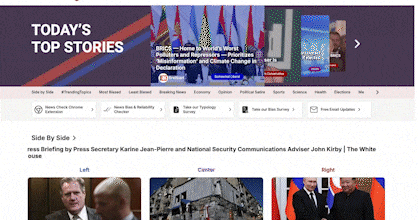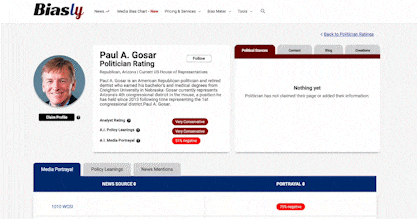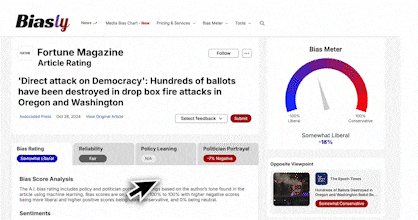Germany's political upheaval and the transatlantic alliance's uncertain future
- Bias Rating
32% Somewhat Conservative
- Reliability
70% ReliableGood
- Policy Leaning
50% Medium Conservative
- Politician Portrayal
-62% Negative
Continue For Free
Create your free account to see the in-depth bias analytics and more.
Continue
Continue
By creating an account, you agree to our Terms and Privacy Policy, and subscribe to email updates. Already a member: Log inBias Score Analysis
The A.I. bias rating includes policy and politician portrayal leanings based on the author’s tone found in the article using machine learning. Bias scores are on a scale of -100% to 100% with higher negative scores being more liberal and higher positive scores being more conservative, and 0% being neutral.
Sentiments
-8% Negative
- Liberal
- Conservative
| Sentence | Sentiment | Bias |
|---|---|---|
Unlock this feature by upgrading to the Pro plan. | ||
Reliability Score Analysis
Policy Leaning Analysis
Politician Portrayal Analysis
Bias Meter
Extremely
Liberal
Very
Liberal
Moderately
Liberal
Somewhat Liberal
Center
Somewhat Conservative
Moderately
Conservative
Very
Conservative
Extremely
Conservative
-100%
Liberal
100%
Conservative

Contributing sentiments towards policy:
53% : After experiencing the economic "miracle" of the post-war years, it now has one of the slowest growth rates in the EU -- expected to be a mere 0.7 percent this year after two consecutive years in which the economy contracted.48% : Hence, it is dangerous to ignore Merz's warnings that the rise of the AfD is a "final warning" to democratic parties -- and that internationally, the continent is facing its "five minutes to midnight" moment, with shifting geopolitics and a possible weakening of the transatlantic alliance with the U.S. under Trump.
46% : But AfD, some of whose members have been associated with neo-Nazis, managed more than 10 million votes (over 20 percent of the total), despite having normalized and legitimized extreme anti-immigration and national-chauvinistic rhetoric.
33% : Trump began to impose tariffs on European goods, thereby threatening the recovery of an already underperforming economy.
22% : By the time the election results were announced, transatlantic tensions had increased, as it became increasingly apparent that President Trump did not share the view of a united front between the U.S. and Europe on halting Putin's aggression.
*Our bias meter rating uses data science including sentiment analysis, machine learning and our proprietary algorithm for determining biases in news articles. Bias scores are on a scale of -100% to 100% with higher negative scores being more liberal and higher positive scores being more conservative, and 0% being neutral. The rating is an independent analysis and is not affiliated nor sponsored by the news source or any other organization.

























 The Hill
The Hill


